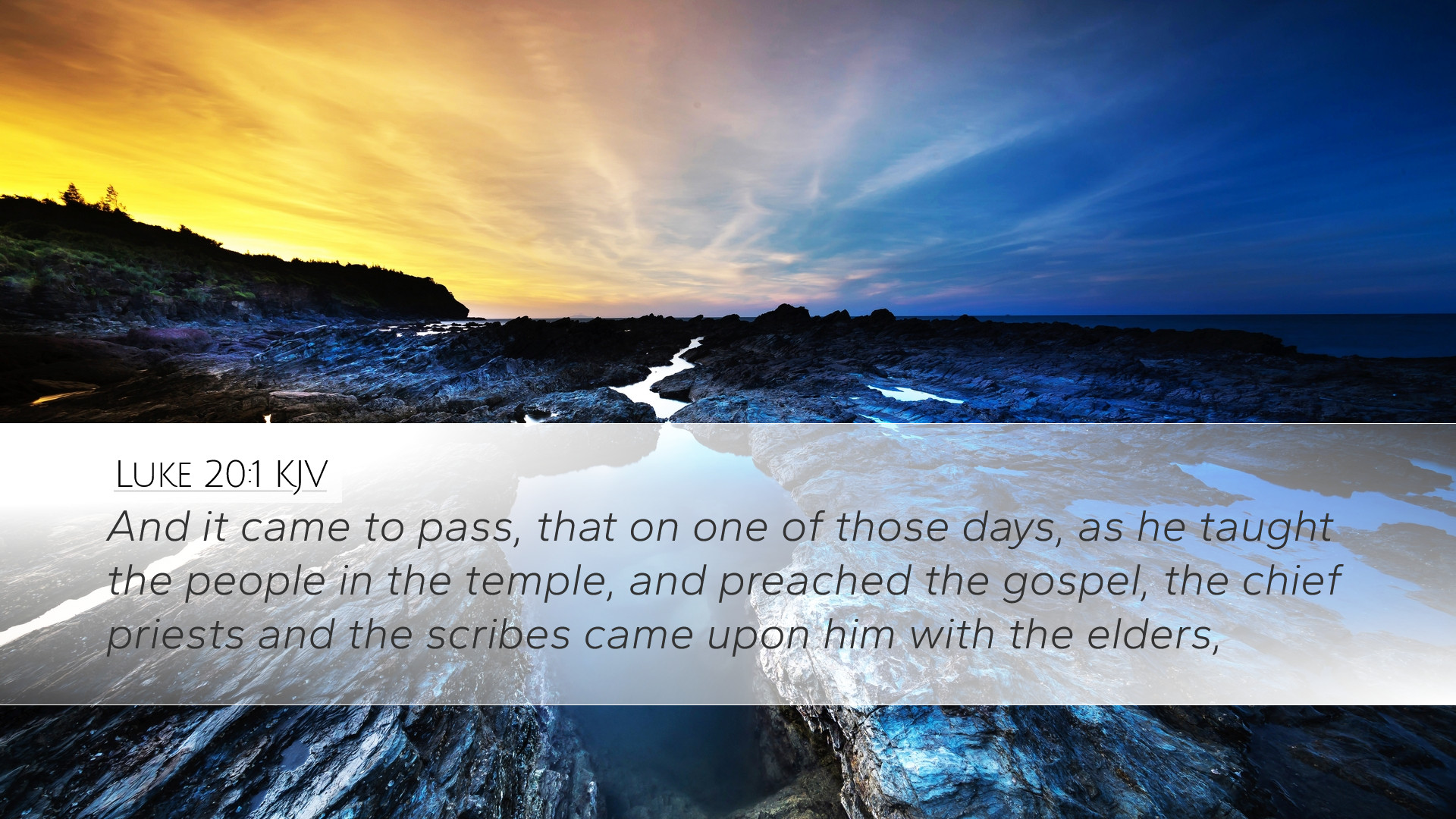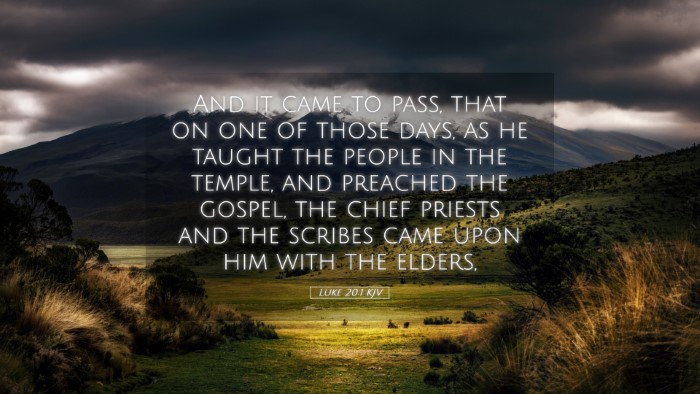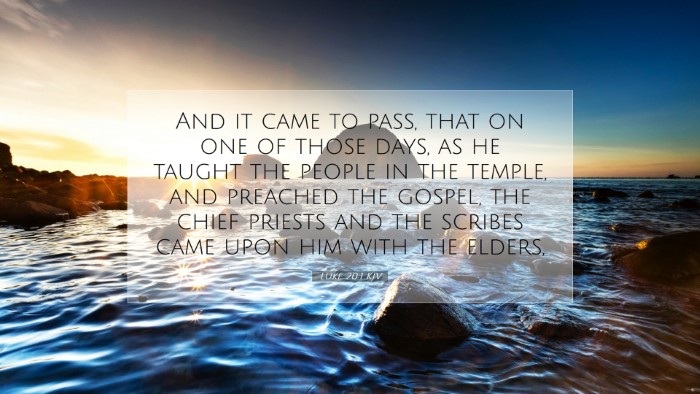Commentary on Luke 20:1
In the context of the Gospel of Luke, chapter 20 presents a critical moment in the narrative of Jesus’ ministry, particularly as it relates to the authority of Jesus. In Luke 20:1, we encounter a pivotal encounter between Jesus and the religious leaders of His time. Below, we integrate insights from several classic public domain commentaries to offer a comprehensive understanding of this verse.
Text of Luke 20:1
“And it came to pass, that on one of those days, as he taught the people in the temple, and preached the gospel, the chief priests and the scribes came upon him with the elders.”
Background and Context
Luke places this verse at a crucial juncture in the final week of Jesus' earthly ministry, following the triumphal entry into Jerusalem. The atmosphere is charged with tension as Jesus' authority is being challenged openly by the religious leaders. Matthew Henry observes that this confrontation was not merely incidental but a direct result of Jesus’ increasing popularity and the threat He posed to the established religious order.
Location of the Encounter
This engagement occurs in the temple, a focal point of Jewish worship and authority. Adam Clarke comments on the significance of the temple setting, noting that it is where Jesus has come to teach and fulfill His mission openly, contrasting the hidden agendas of the religious leaders who sought to undermine Him.
The Timing of the Events
Henry emphasizes that this incident occurs "on one of those days," hinting at the urgency and seriousness of the situation. It underscores the ongoing nature of the conflict between Jesus and the religious authorities. The presence of “the chief priests, scribes, and elders” signifies the formal leadership of the Jewish community banding together in opposition to Jesus.
Exegesis of Key Phrases
- “As he taught the people in the temple”: This phrase highlights both the authority of Jesus as a teacher and His accessibility to the everyday people, contrasting the elitism often associated with the religious leaders.
- “Preached the gospel”: The term "gospel" reflects Jesus' role as a proclaimer of the good news. Albert Barnes argues that this indicates the positive message of redemption and the Kingdom of God, positioning Jesus as a counter to the legalism of the Pharisees.
Analysis of Religious Authority
This moment in Luke 20 underlines the conflict over authority. Jesus operates with divine authority, which alarmed the religious leaders who felt threatened by His teachings and growing influence. Clarke points out that the challenge posed by these leaders was rooted in their jealousy and desire to maintain their power. There is an implicit question of legitimacy: who has the right to teach in this sacred space?
Reactions of the Religious Leaders
The arrival of the chief priests and scribes is not merely an inquiry; it represents a calculated strategy to discredit Jesus. They approach Him with hostility, seeking to trap Him in His words. Barnes highlights that their actions reflect the broader narrative of rejection that characterizes the Gospel story, emphasizing how Jesus became a stumbling block to those who were supposed to be leaders in spiritual matters.
Theological Implications
Luke 20:1 invites readers to contemplate the nature of spiritual authority. The incident serves as a stark reminder of the tension that often exists between institutional religion and spiritual renewal. In the face of institutionalized power, Jesus presents an alternative that prioritizes grace and personal relationship with God over rigid adherence to laws.
- Authority of Christ: The verse underscores that Jesus’ authority is divine and not merely derived from human traditions or titles.
- Opposition to Truth: The response of the religious leaders illustrates a broader truth about how those in power may resist new revelations of truth.
Application for Believers
This passage remains relevant for contemporary believers as it challenges them to evaluate their understanding of authority and truth. Pastors and theologians can draw implications about the nature of church leadership and the importance of being open to divine revelation that may challenge traditional interpretations.
Encouragement for Faithful Teaching
For students of theology and scripture, the context encourages a commitment to faithfully teaching the Gospel, emphasizing the necessity of engaging with Scripture deeply and understanding its transformative power. Pastors are reminded to lead with humility, recognizing that true authority comes from God and should be exercised in service to others.
Conclusion
Luke 20:1 sets the stage for a significant confrontation in Jesus' ministry, revealing the ongoing challenge between divine authority and human religious structures. By reflecting on the insights from the public domain commentaries of Matthew Henry, Albert Barnes, and Adam Clarke, believers are encouraged to deepen their understanding of Christ’s mission and their role within the church today.


